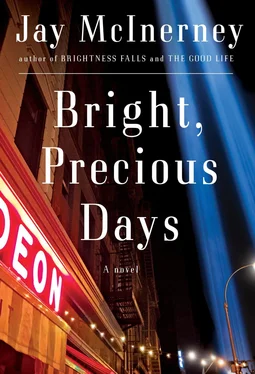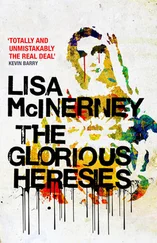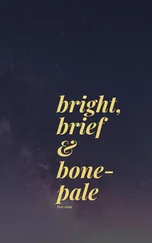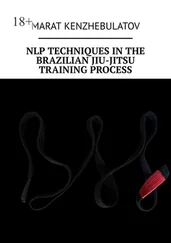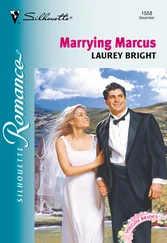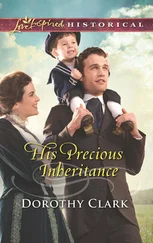The room itself was less austere than the entry hall, the decorator seeming to have grudgingly acknowledged the need for some furniture — a pair of bargelike beige sofas faced each other across a prodigious expanse of white-lacquered coffee table. An orange-and-chartreuse Rothko hung over the stark black marble fireplace.
Casey waved her over to the corner that she shared with the woman they’d seen at Justine’s a few weeks before, who resembled a bejeweled Giacometti in a canary yellow dress. She stood beside an actual Brancusi — a shiny marble Bird in Space. Even as Casey introduced them, the scarecrow glanced over the top of Corrine’s head in search of more familiar faces.
“Can’t thank you enough,” Corrine told her friend. “Jeremy’s so excited.” Her son nodded solemnly in confirmation, visibly flustered by the arrival of Casey’s daughter, Amber, a budding beauty three years his senior. A quadruple threat: blond, tall and elegantly thin, she had in the past year sprouted perfect pear-shaped breasts. It hardly seemed fair, with all her other advantages, that she should look so good, or that she could maintain an A average at Spence. She was destined, Corrine felt certain, to make some nice boy from Harvard or Princeton very miserable.
“You remember Jeremy,” Casey said.
“Yeah, hi. Look, Mom, can we go to Jessica’s house after this? Her dad has an advance copy of Knocked Up and we’re going to watch it in their screening room.”
“This is what, a new movie?”
Amber rolled her eyes. “It’s the new Seth Rogen and Katherine Heigl, and it’s not even in theaters yet.”
“It’s supposed to be really cool,” Jeremy said, gazing up at Amber with fear and longing.
“I suppose that’s fine. But not until after the presentation. And I want you to ask questions.”
“Whatever.”
“You know I hate that word.”
“Okay, fine, I will ask incisive questions that make my mother look good and thereby increase her chances of getting asked to be on the board of the Wildlife Society, which is the only reason we’re here. I don’t even know why you want to be on the stupid board anyway. You don’t even like animals.”
“We’re all animals, Amber. Let’s go upstairs and get a seat, shall we?”
Rows of folding chairs had been set up in the library on the third floor. Jeremy insisted on taking a seat in the first row. Corrine sat, reluctantly, beside him, with Casey on her right. At the end of their row, a cameraman and a soundman were setting up under the supervision of Trina Cox, one of cable TV’s Money Honeys, not to mention Russell’s former partner in the failed attempt to takeover Corbin, Dern, the publishing company where he’d been working at the time. Russell had somehow conceived the idea of a leveraged buyout of his employer after learning that he was on the verge of getting fired, and Trina had been the investment banker who advised him and, quite possibly, slept with him. They might have succeeded in the takeover if the stock market crash hadn’t derailed them. It was the eighties. Stranger things had happened.
Now Trina was one of several babes employed by the cable stations in the past decade to deliver business and economic news, the collective bet being that the audience for such, as with sports, was largely hetero male. Corrine had to admit she looked good. Though she hadn’t been a raving beauty back in the days when she was seducing Russell — call her crazy, but Corrine certainly didn’t think so — she was one of those women who’d actually grown more attractive in her thirties and forties, her face losing baby fat and gaining definition. Still, this seemed like quite a comedown from delivering the monthly jobs report on CNN. She was alternately standing in front of the camera, mike in hand, and checking the playback.
“Jesus Christ, I look like Kathy Bates in Misery. Can we do something with the fucking lights, please?”
“Excuse me….”
One of the moms raced over and tapped Trina on the shoulder. “ Excuse me, this is an event for children, as you can plainly see, and we would all appreciate it if you’d refrain from inappropriate language.”
“Sorry,” Trina said, turning back to the cameraman. “I meant to say ‘Could we please do something with these fornicating lights?’ ”
The buzz of conversation subsided when Minky wafted into the room, her gold caftan flapping like a sail. Even as a debutante she’d been more zaftig than her peers, and the years had only added to her volume. Surrounded by stick figures, she seemed to be serenely comfortable in her flesh, untroubled by the neuroses and eating disorders of the lesser rich. Her blond bob was kept in check by a black velvet headband and she was bedizened with enormous jewels.
“My friends,” she began, “thank you so much for coming. And thank you for supporting the Wildlife Society.” A few of the children tittered, seemingly amused by her fluty patrician voice. “I’m particularly pleased for the opportunity to introduce these young people to our group. It’s crucial that we preserve our wildlife so that you will inherit an earth where humans and animals live in harmony. Imagine a planet with no lions or tigers or elephants. If not for our society, there might have been no American bison left. Do you children all know what the bison is?”
“It’s a buffalo.”
“We have bison burgers when we go to Jackson Hole. Mom says they’re superhealthy.”
“That’s gross.”
Minky frowned. “What you children may not know is that by the end of the last century the bison had been hunted almost to extinction. In 1907, our founder, William Temple Hornaday, sent fifteen bison from the Bronx Zoo to a reserve in Wichita, Kansas, where the buffalo had once roamed in the millions, and gradually the species recovered in some of its natural habitats. Today we’re working to save other endangered species. Who here has visited the Central Park Zoo?”
A unanimous chorus of cheers and huzzahs.
“And the Bronx Zoo?”
Only a trickle of affirmations followed this query.
“Well, today we have a very special visitor from the Bronx. Please welcome Lionel the Liger and his trainer, Dr. Michael Jost.”
All eyes turned toward the hallway, which was empty. A disembodied voice was exhorting the star attraction: “Lionel…Lionel?”
Necks were craned; feet were scuffed. The tension was broken, briefly, by a pigtailed preschooler in a tartan jumper: “Come on, Lionel, don’t be afraid.”
Trainer and beast finally appeared at the top of the stairway, eliciting a collective gasp and assorted squeals, the liger resisting the pressure on his leash, batting at the silvery chain links and shaking his head back and forth. It was a very big animal, much bigger than Corrine had expected. The man holding the leash, though fairly solid, wouldn’t stand a chance against a cat that must’ve outweighed him by a factor of three or four.
The squeals rose in volume as he succeeded in leading it into the library. After some coaxing and pushing, he managed to get the big cat to sit on its hind legs.
“Good afternoon, everyone. I’m Dr. Jost, from the Bronx Zoo, and this is Lionel, who’s visiting us from his home at an animal refuge in South Carolina.”
“Isn’t he from Africa?”
“No, he’s not, but I’m glad you asked that. Lions and tigers don’t live near each other in the wild. The Bengal tiger lives in Asia and the lion is native to Africa.”
“So how did the lion have sex with the tiger?” shouted one of the older boys.
Dr. Jost waited patiently for the uproar to subside.
“Well, in the case of Lionel’s mom and dad, they were living together at the game refuge. His father was a lion and his mother was a tiger. And, in fact, the liger shares traits with both of his genetic parents. Like tigers, they like to swim, and like lions, they’re very sociable. But they’re significantly bigger than either lions or tigers. They can grow almost twice as big.”
Читать дальше
